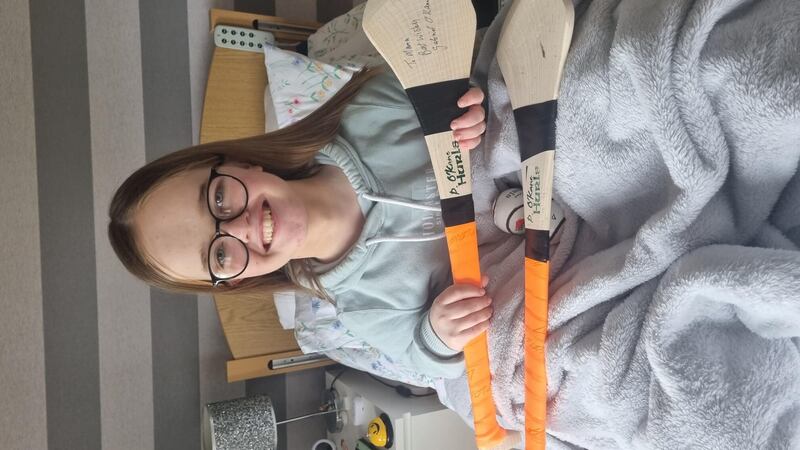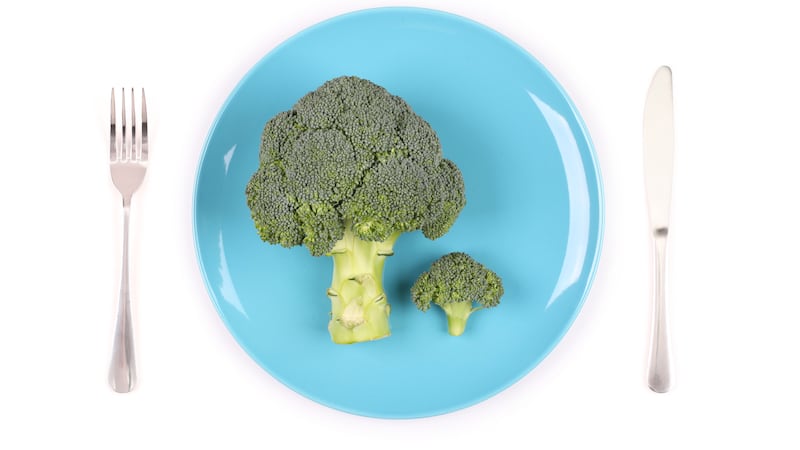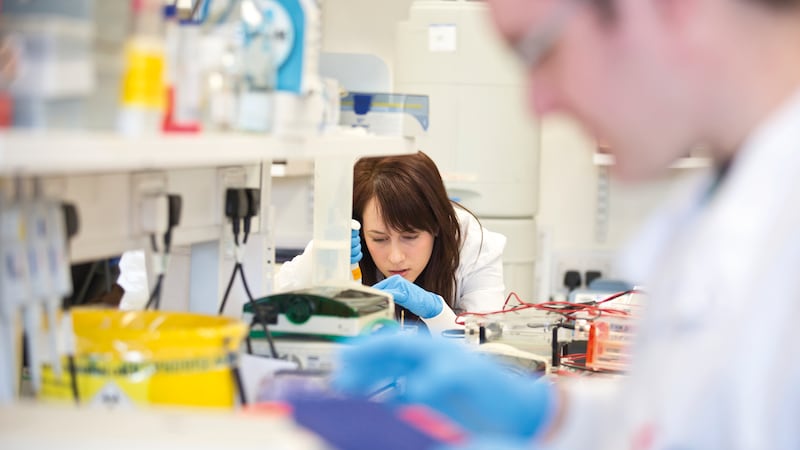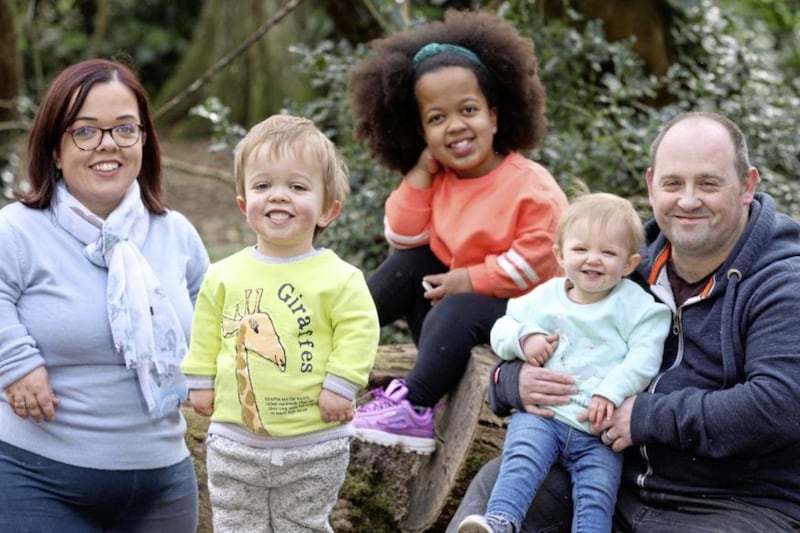Claire Scullion describes her 14-year-old daughter Maria as being “one of the lucky ones” in terms of accessing specialist medical teams and life-changing medical surgery, but it hasn’t been without years of fighting for support.
Maria, who lives between Maghera and Magherafelt, was born with achondroplasia, the most common form of dwarfism. The rare genetic bone growth disorder occurs in approximately one in every 25,000 births.
Claire and husband Brian felt isolation and lack of support from the beginning. Their daughter’s condition was not identified in any pre-natal scans and whilst it quickly became apparent she wasn’t following normal growth patterns, with shorter legs and arms and a “head circumference off the chart”, initial blood tests came back as inconclusive.

It wasn’t until Maria was five months old that she was formally diagnosed with achondroplasia.
Whilst it doesn’t affect cognitive development, achondroplasia can cause a number of possible health complications including: reduced breathing for short periods of time (apnea); upper airway obstruction; hearing loss; dental problems and bowed legs. Many adults suffer chronic leg pain and lower back problems that can lead to difficulty walking.
“We were just told she had the condition and sent away,” reflected Claire.
A month later, the World Dwarf Games were in Jordanstown and, out of curiosity, Claire and her sister travelled to the closing ceremony.
“In my head I thought Maria was going to be different. But when I went and saw hundreds of athletes, all with Maria's condition, it was very evident then that this was Maria's reality,” she recalls.
As a baby, Maria was very unsettled and suffered from bad reflux and a strong gagging reflex. Rather than be signposted to support agencies and medical professionals, Claire found herself “under constant pressure and anxiety” and admits her early memories of Maria were “difficult” ones.
“Our health visitor just hadn't done her homework on the condition. She would come and say “your child should be sitting up” or “your child should be able to tolerate solid foods now”.
“At the time, all I needed was someone to say to me: “Listen, the milestones are delayed in a child with achondroplasia, but she will get there”. Instead, those first couple of years were just horrendous, and we felt that we were failing Maria.”
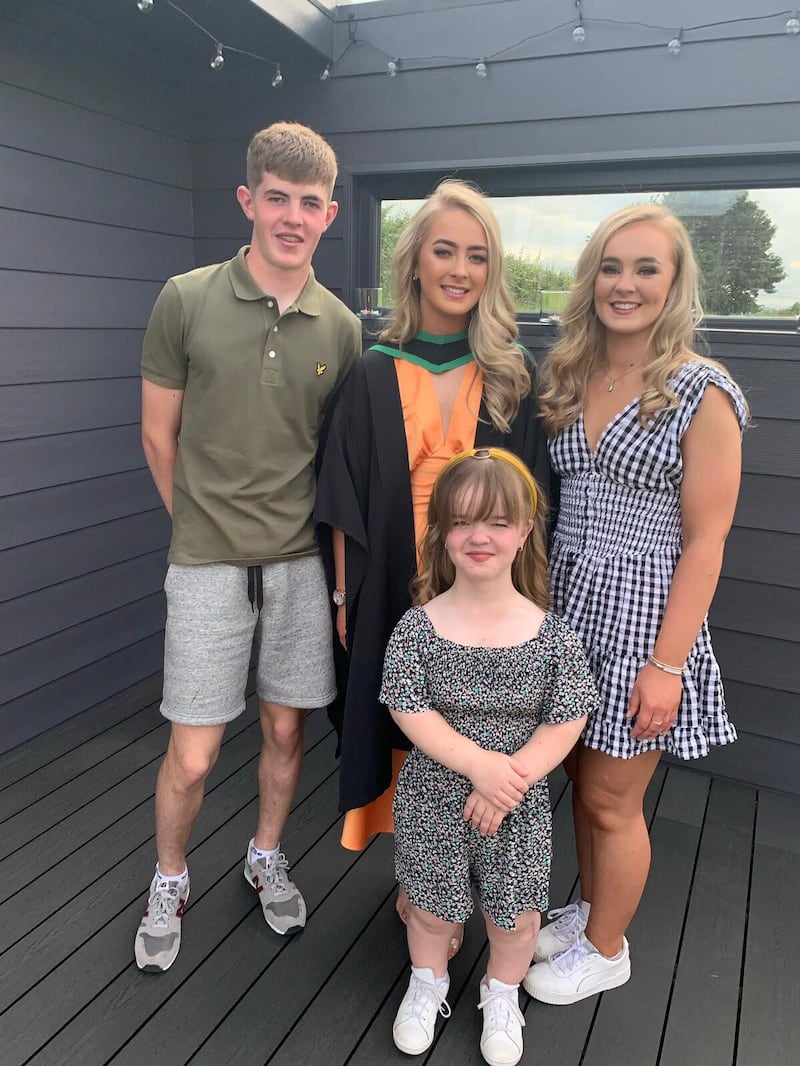
Thankfully, a change in health visitor, when Maria was almost three, helped the family access specialist input.
“There is no joined-up approach or specialist clinics in the north of Ireland. We were fortunate our new health visitor fought for Maria to be seen by the multidisciplinary team in London’s Evelina Clinic, part of Guy’s and St Thomas’,” says Claire.
Like her three older siblings, Maria enjoyed taking part in Gaelic sports at her local GAA club, Erin’s Own in Lavey.
However, from the age of seven, Maria had escalating knee dislocation problems and was forced to give up sport at the age of 11.
Maria’s legs are bowed and there is a 5cm difference in length between her tibula and fibula. As a result the ligaments and tendons that support the knee are in places where they shouldn't be.
Whilst Maria had an operation in Belfast’s Musgrave Hospital for eight-plate surgery to stop the growth of her shorter fibula, its success was minimal.
It was through the annual gathering of Little People of Ireland (LPI), an Irish national charity for people with dwarfism-related conditions, seven years ago that the Scullion family were introduced to the ground-breaking work of orthopaedic consultant Connor Green.
“He spent time in America working in a centre of excellence for limb construction and talked about the importance of alignment in the hips, knees and ankles in order to prevent some of the more debilitating mobility side effects of the condition later in life.”
When the NHS failed to fund an appointment with Dr Green at the National Orthopaedic Hospital, Cappagh in Dublin as he was outside their geographic jurisdiction, the family paid privately to see him.
Dr Green wrote a detailed report to the NHS funding committee recommending Maria have joint realignment surgery on her upper and lower limbs.
Once again, funding was refused. However, they did pay for flights and accommodation for Maria to see a surgeon at Alder Hey Children's Hospital in Liverpool.
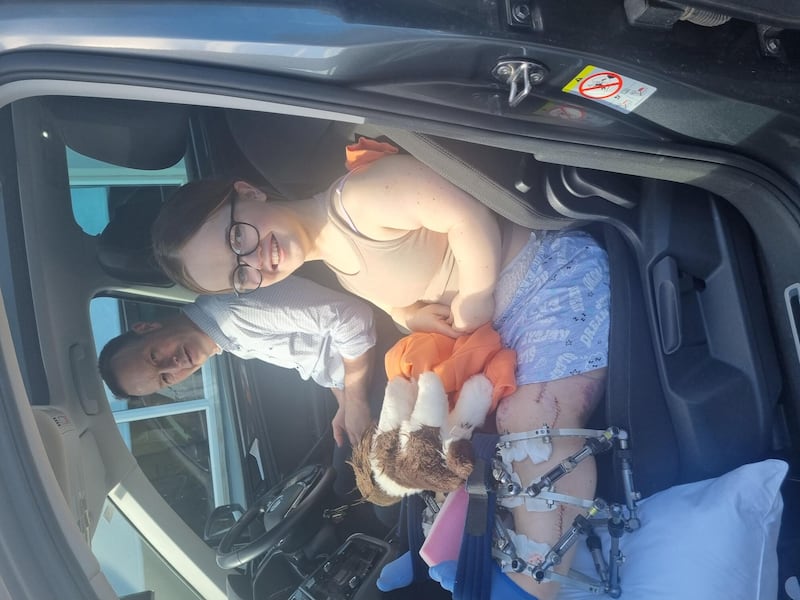
“In Dublin she could have both operations a week apart, but they do slightly different surgery in Liverpool. Maria would have had to be admitted for 14 weeks, have an operation which would put her off her feet for six months and, when she had fully recovered, have a second operation, which again would take her months to recover from.
“The consultant in his report said he felt that Maria’s safety would be compromised if she came home and something went wrong and she couldn’t get straight back to Liverpool. It was on that basis funding was approved for Dublin.”
Cappagh is only one of five hospitals in the world where this type of leg surgery is performed.
Maria's surgery involved three fractures in each leg, the innovative Fitbone device being fitted to her femurs and fixator frames and pins being attached to her legs to allow them to be rotated to aid lengthening.
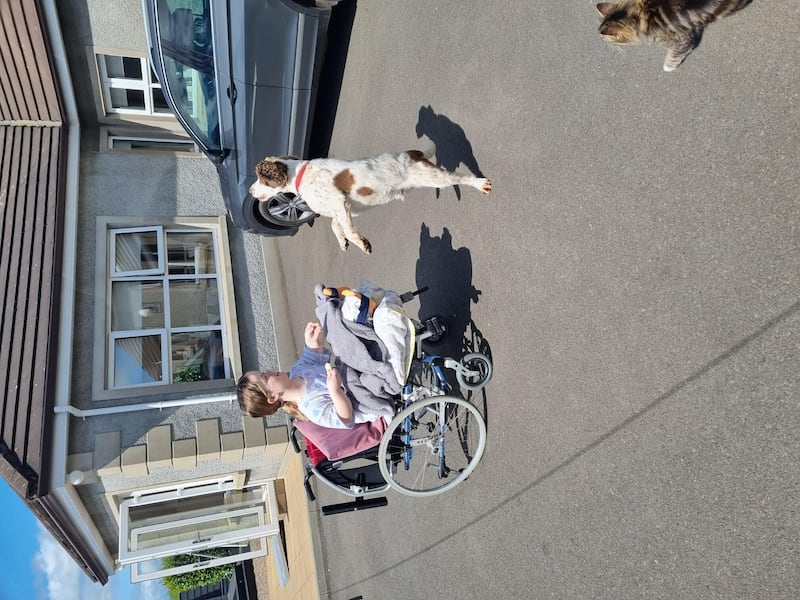
Maria and her parents have now started using the rotational device three times a day and have already noticed a visual difference in her legs.
Over the coming months, Maria also has to do extensive physio. She has had to endure a lot of pain and discomfort, but believes the surgery is worth it for her future.
When recovered, the St Patrick’s College, Maghera pupil is most looking forward to going on long walks with her friends and her dog and even taking a hurl and a slitter out again and hitting it against the wall of their house.
"She's just been a real trooper. She has just amazed us all,” says mum Claire Scullion, who is passionate about ensuring other families affected by achondroplasia have access to equal services.
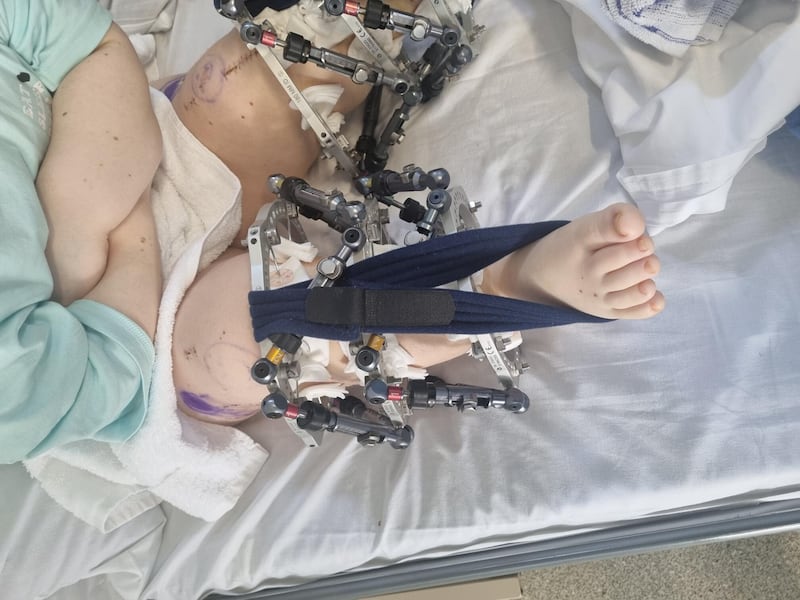
“I know how difficult it was for us, it would've been very easy to give up, thankfully that was not my nature.”
Claire believes that all children with achondroplasia have the right to be referred to specialised clinical teams in a timely manner to aid their development and help prevent further health complications later in life.”
The need for access to these services is more pressing than ever with the availability of a new drug.
Voxzogo, a once-daily injection, is the first and only therapy approved to increase linear growth in children with achondroplasia aged five years and over with open growth plates.
“With achondroplasia there's an overproduction of the protein that allows the bone to form at the correct rate and thus causes the deformity. This new drug switches off the overproduction of the protein,” explains Claire.
The effectiveness of this drug, however, is time bound.
“Maria's growth plates closed when she was 12. So, if you have a paediatrician who is saying, 'No, we're not referring you to the specialist clinic', and you spend years trying to get access, your child could lose the opportunity to benefit.
“The lack of a functioning Assembly is huge as there is no health minister to lobby or discuss this new treatment with.
“I am not advocating this new drug, but parents and health professionals need to know that it's an option," adds Claire.
